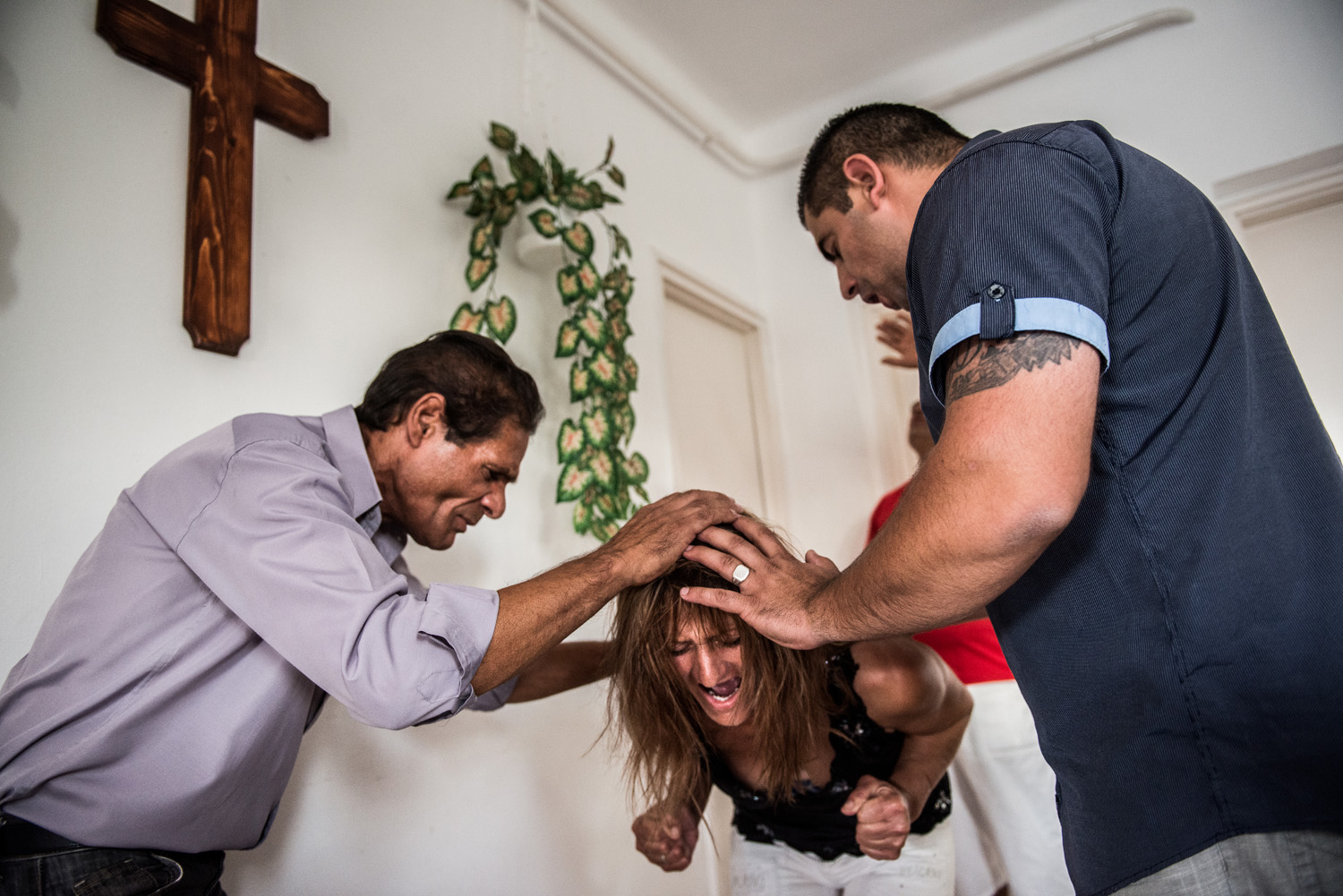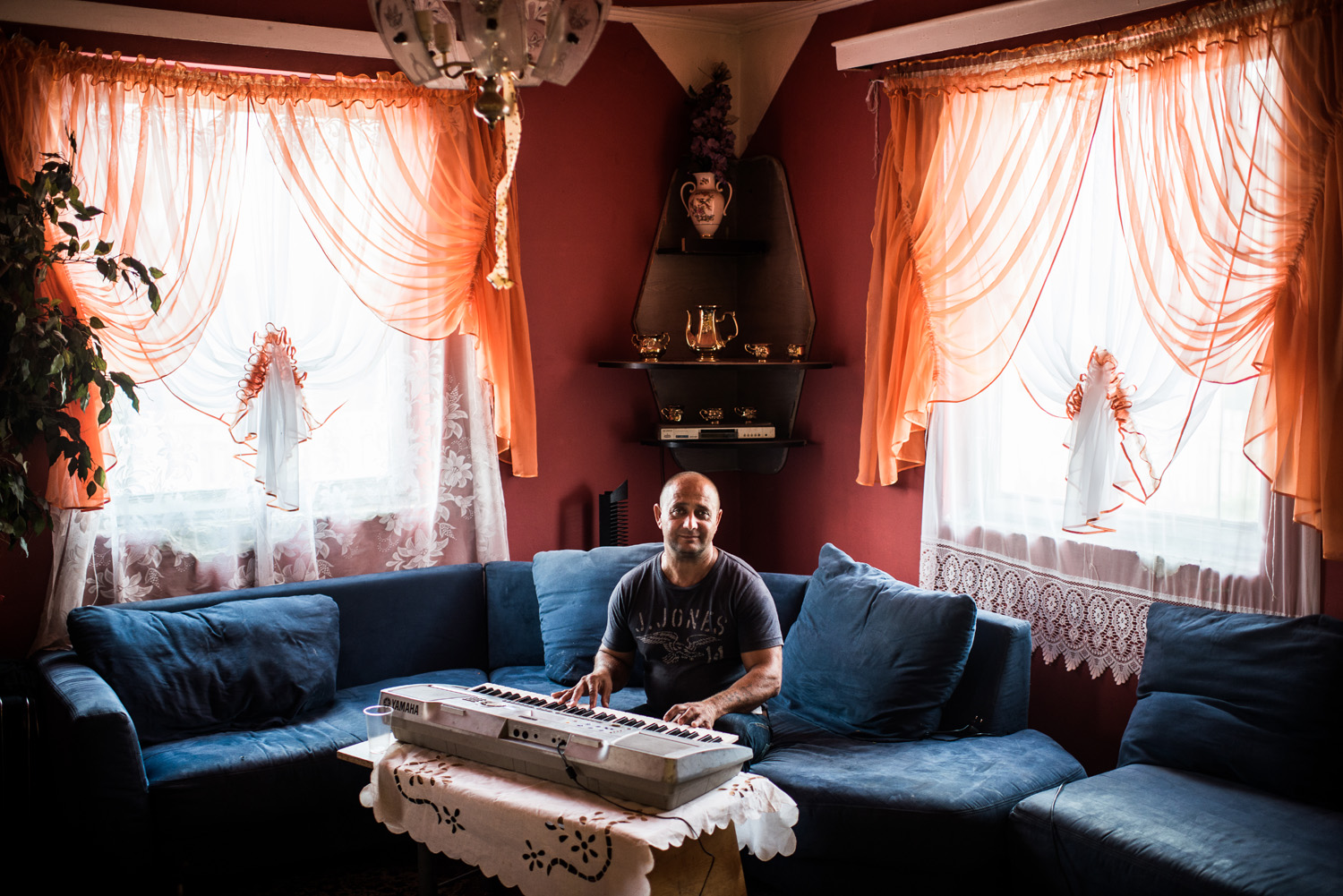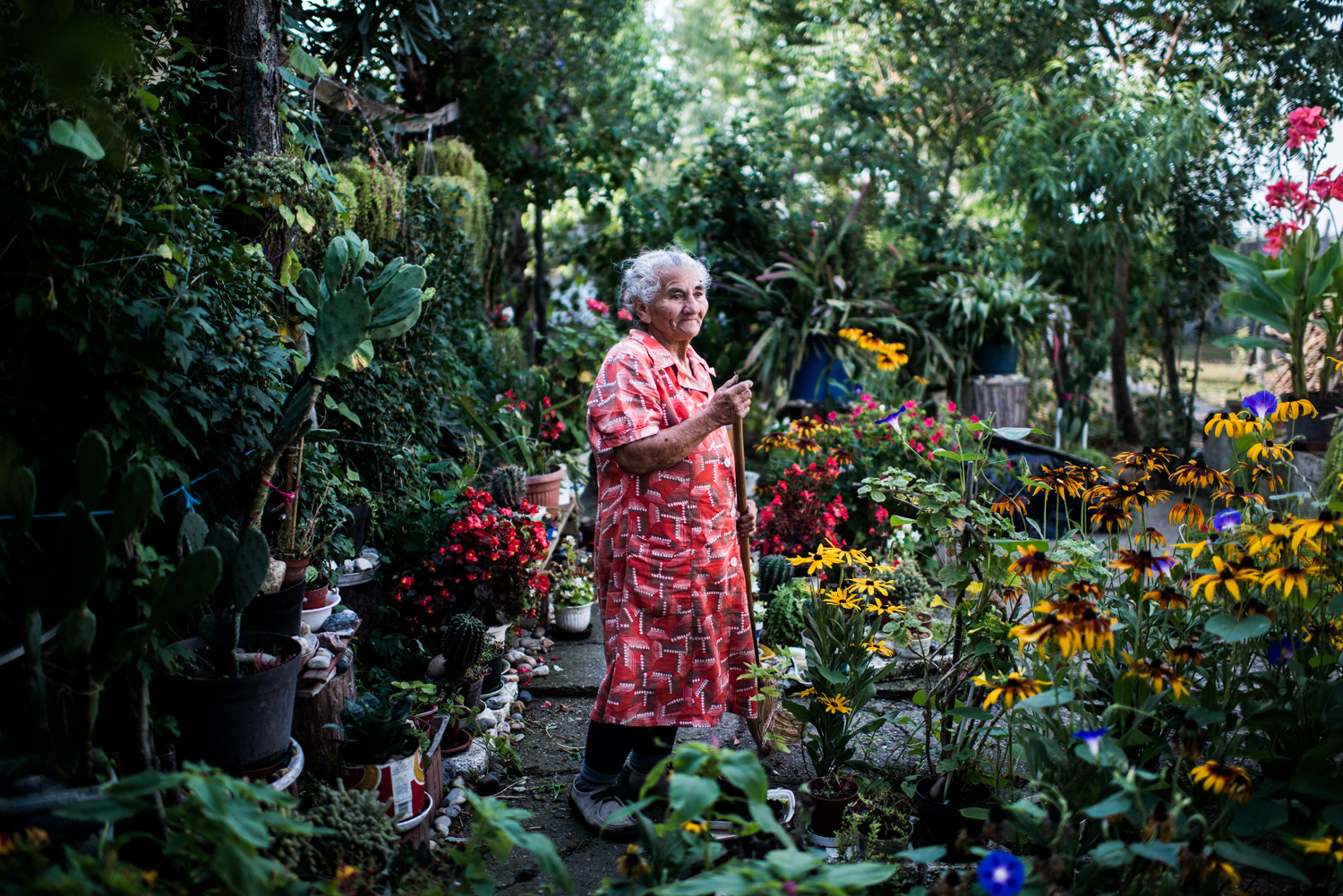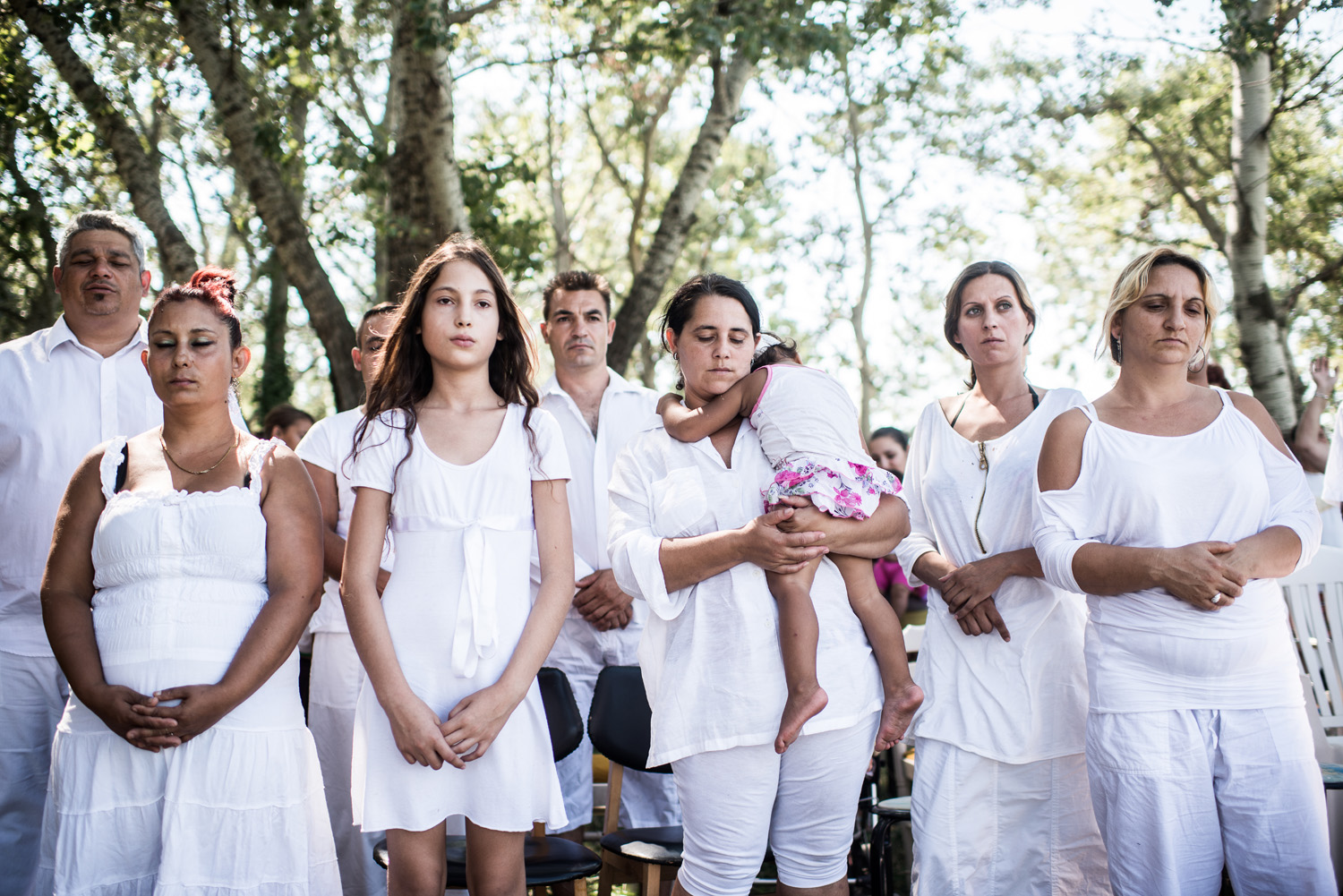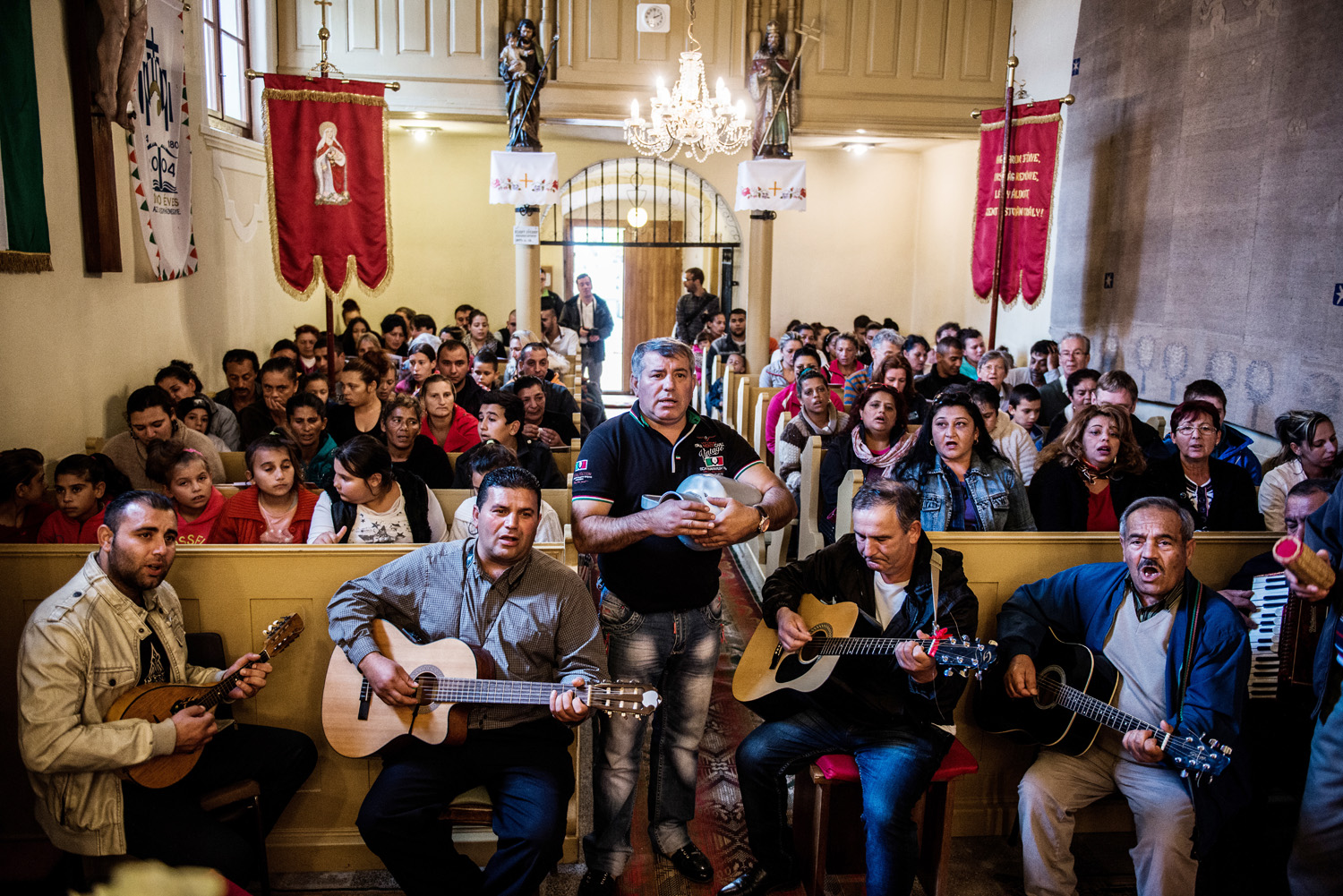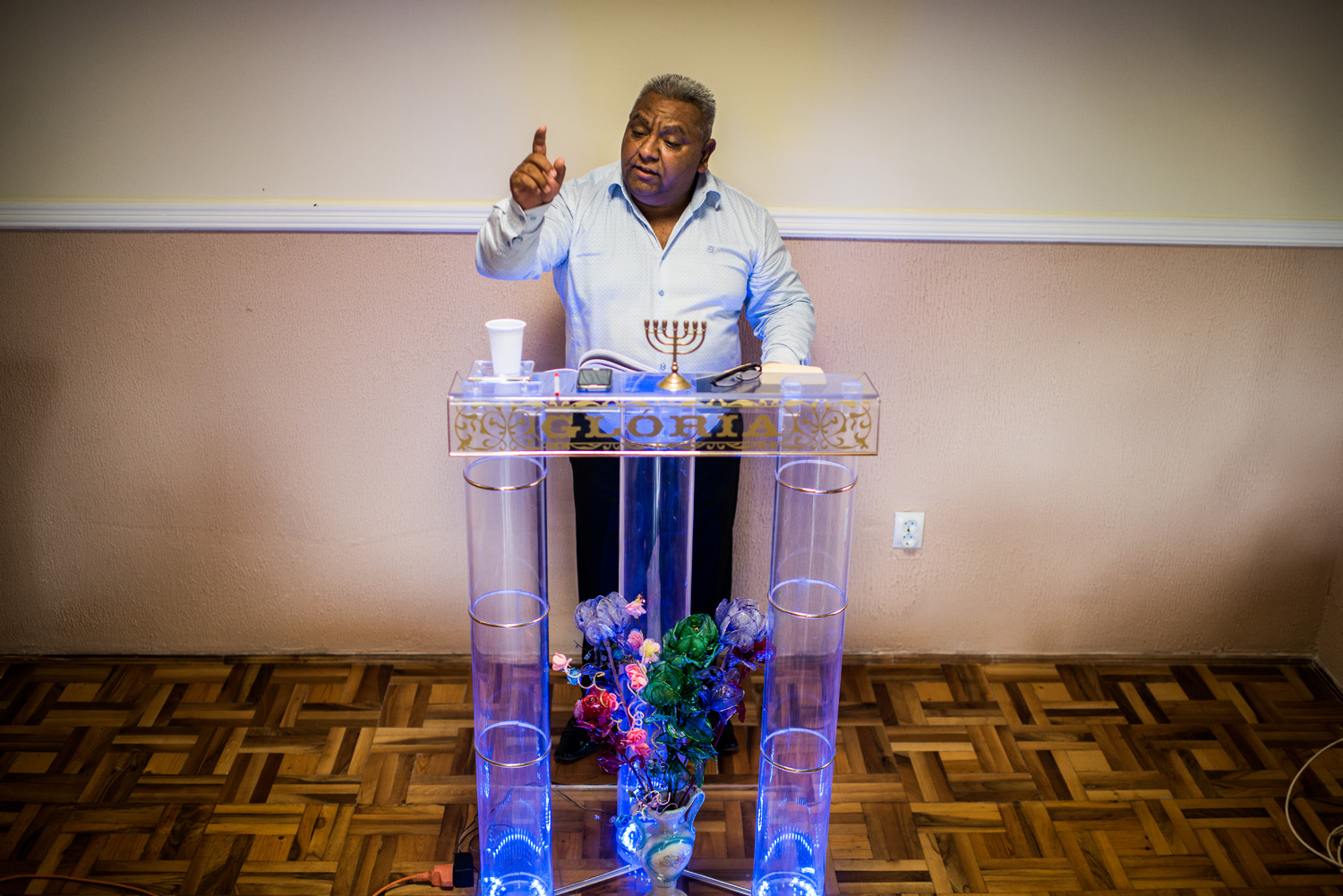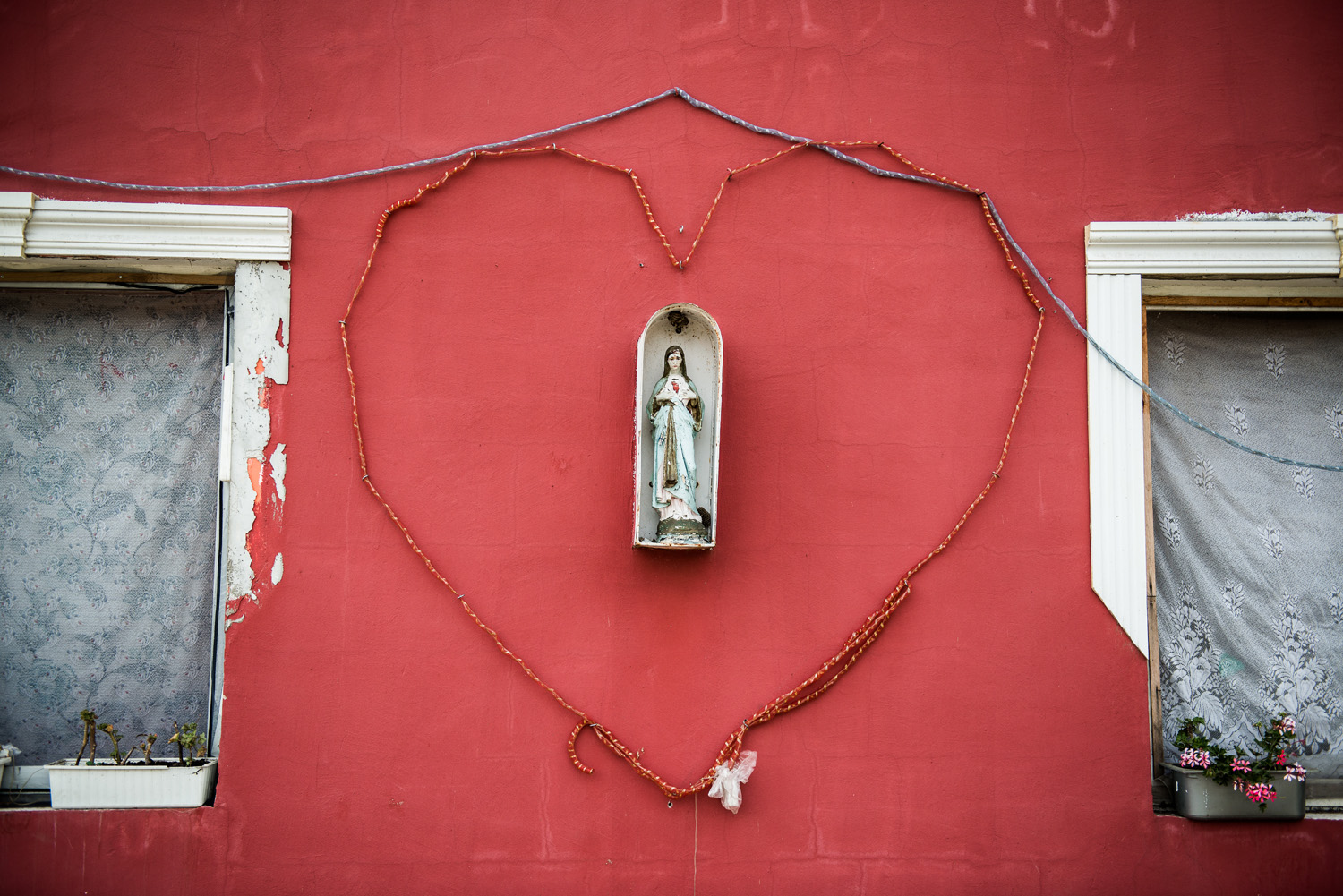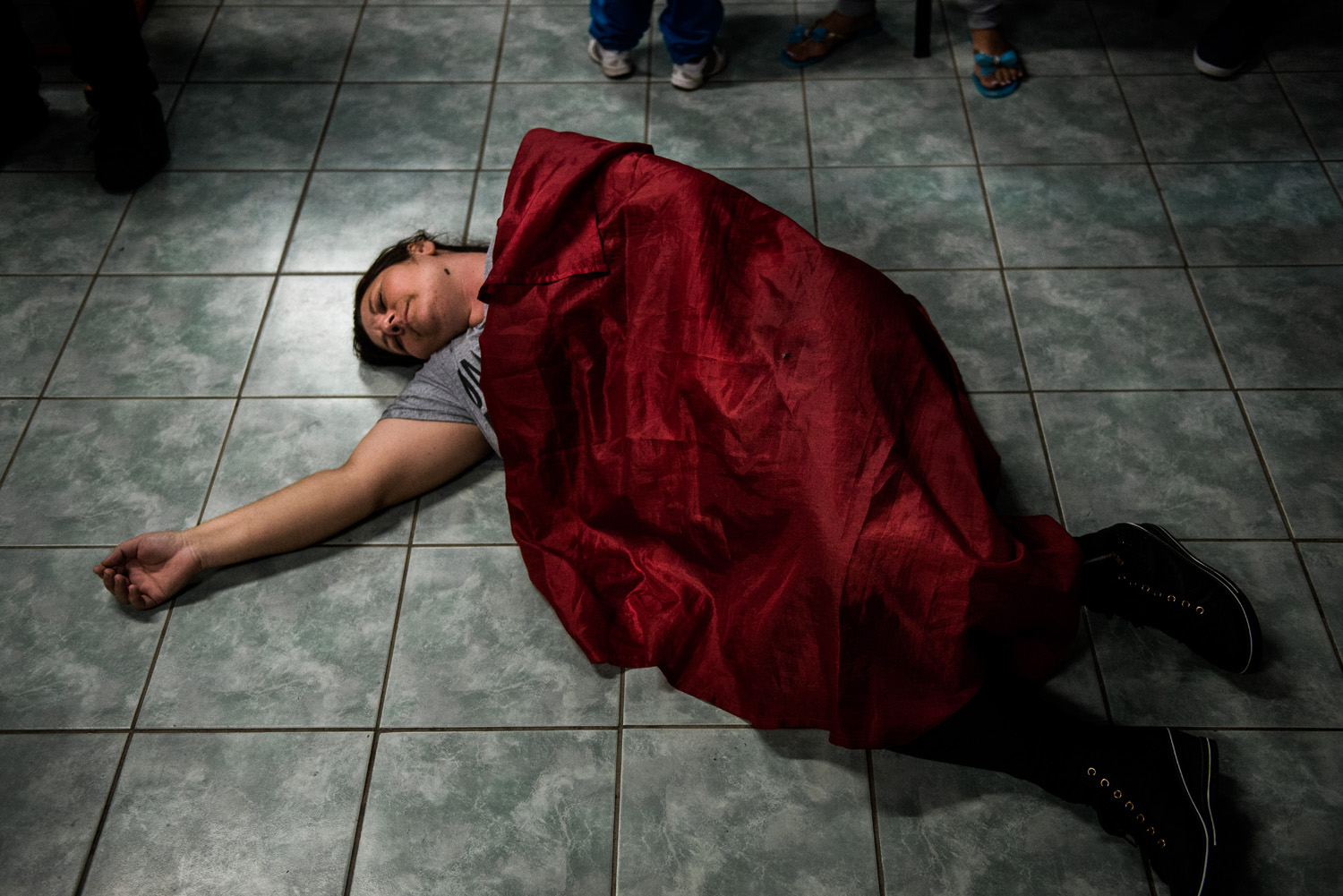

- Bemerítés előtt imádkoznak pásztorok Horgos mellett. // Pastors praying before immersion, near Horgos
- Ördögűzés Taktaszadán. Az ujonnan megtérők közül még sokan hisznek a babonákban, például a rontásban is. // Exorcism, Taktaszada. The majority of new converts still believe in superstitions and such magical elements as a curse.
- Vadász Dezső gyülekezeti vezető otthona Tiszavasváriban // The home of Worship Leader Dezső Vadász, Tiszavasvári
- Kocze Dezsőné a legidősebb megtérő Uszkán. A többségében romák lakta falut az 1980-as években térítették meg a magyarországi szabadkeresztény egyház gyülekezetének pásztorai – azóta a kocsma is bezárt a településen. // Dezsőné Kocze is the oldest Roma convert in Uszka, the village with a Roma majority, whose population had been converted by the Hungarian Free Christian Congregation back in the 80s. Since then the pub has closed in Uszka.
- Orgovány napszámban diót szed a vasárnapi mise előtt Uszka közelében. Magas a munkanélküliség a faluban, legtöbben napszámból keresik a kenyerüket. // Orgovány picks wallnuts as a days work before the sunday mass near Uszka. Due to the high unemployment rate most of the people in Uszka are day labourers.
- Bemerítkezésre várók Horgos mellett. // Converts waiting for immersion, near Horgos.
- Durkó Albert, a Magyar Pünkösdi Egyház Országos Cigánymissziójának vezetője bemerít egy gyülekezeti tagot Kótajon // Albert Durkó, leader of the National Roma Mission of the Hungarian Pentecostal Church immersing a congregational member, Kótaj
- A katolikus verbita rend miséje Körömön. A cigánymisszió célja, hogy éreztesse a romákkal, hogy a templomban elfogadás, szeretet és megbocsátás várja őket – mondja a gyülekezetet vezető indiai Lourdu atya. // Mass of the Catholic Society of the Divine Word, Köröm. The goal of the gypsy mission is to make the Roma feel acceptance, love and forgiveness at the church, says Father Lourdu of India, leader of the congregation.
- Rézműves József pásztor igét hirdet Kótajon // Pastor József Rézműves preaching, Kótaj
- Szálasi nevét tetováltatta a karjára a volt bőfjeű Kis István, aki ma roma fiatalokat térít meg és a békési pünkösdista egyházban prédikál. // Kis Istvan is a former skinhead with a tattoo of the name of “Szálasi”, leader of the Hungarian post-war fascist party. He converts now Roma youth and preaches at the Congregation at the Pentecostal church in Békés.
- Szűz Mária szobor egy ház oldalában Kompolton // Statue of the Virgin Mary on the side of a house, Kompolt
- Nő transzban, Élet Kenyere Közösség, Tiszavasvári // Woman in trance, Bread of Life Congregation, Tiszavasvári
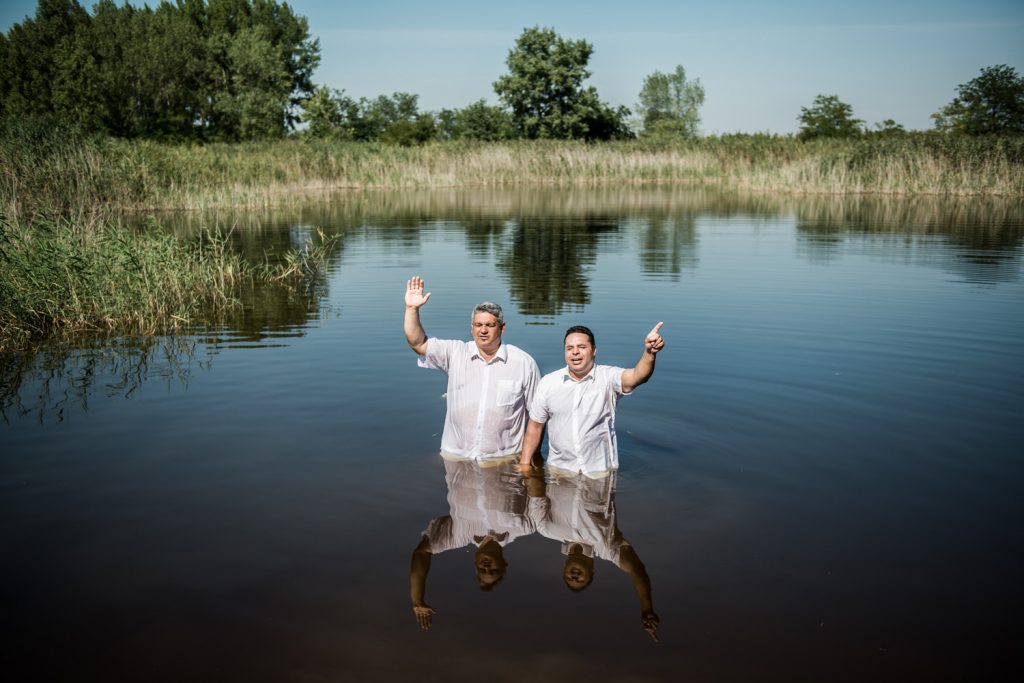
Pastors praying before immersion, near Horgos
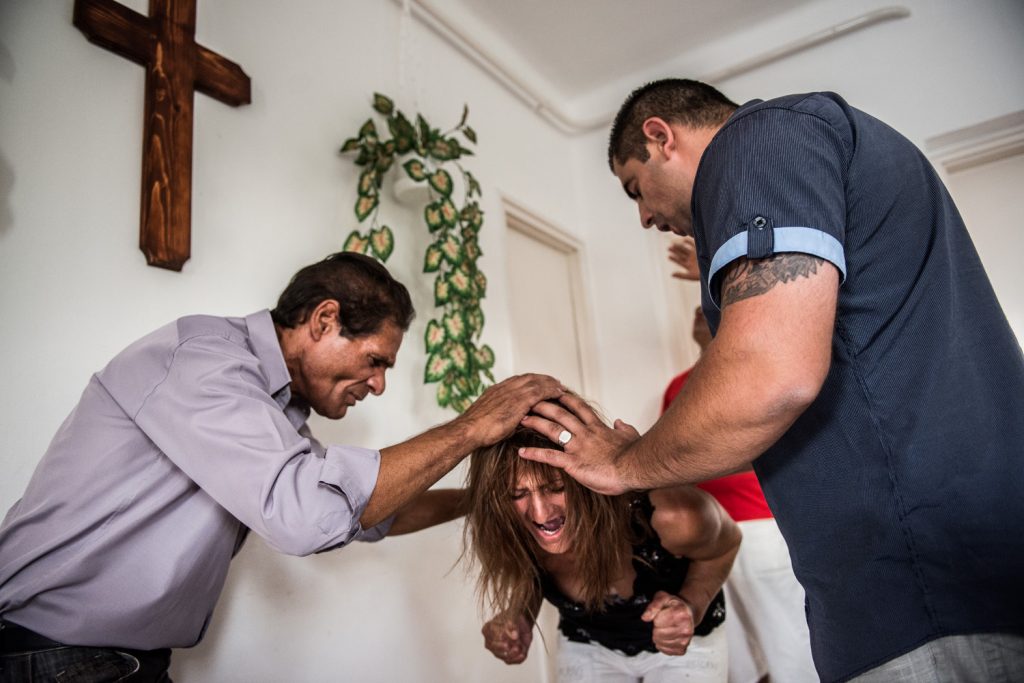
Exorcism, Taktaszada. The majority of new converts still believe in superstitions and such magical elements as a curse.
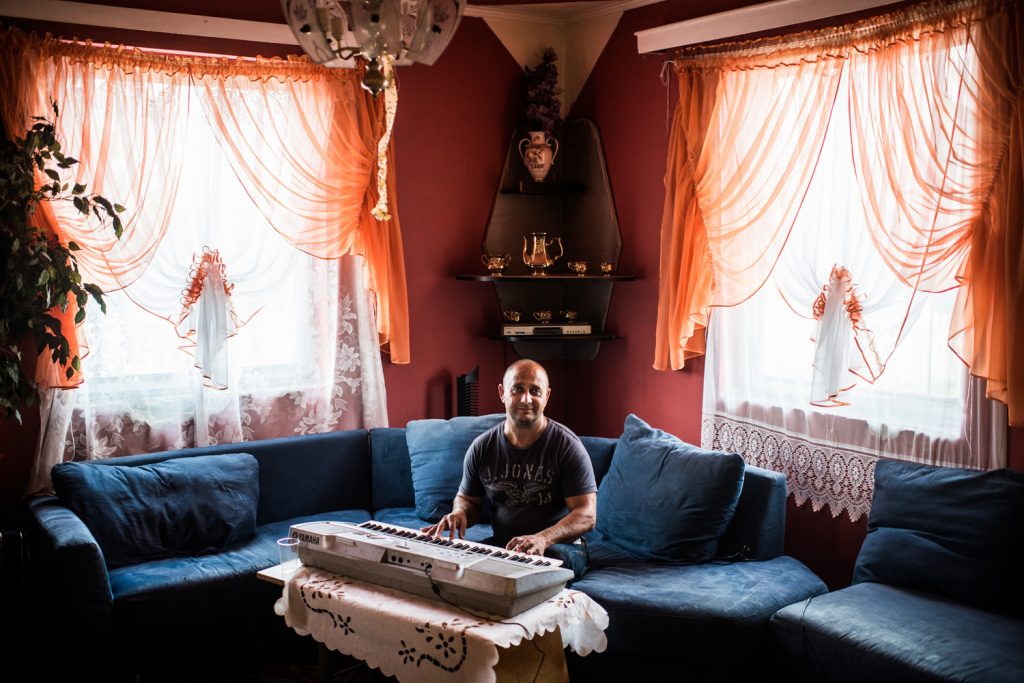
The home of Worship Leader Dezső Vadász, Tiszavasvári
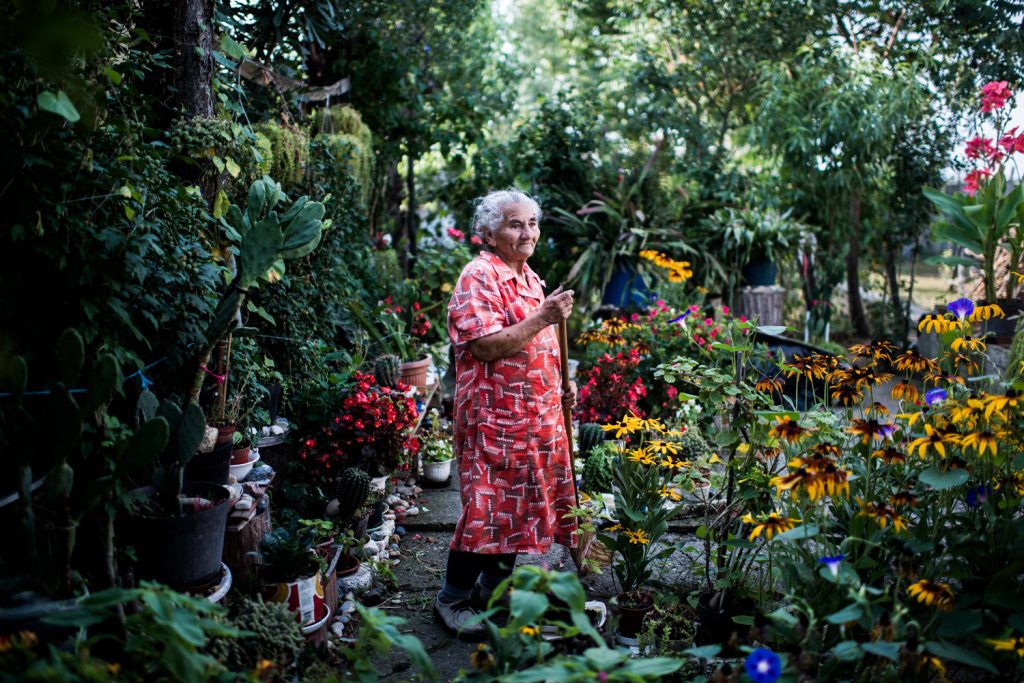
Dezsőné Kocze is the oldest Roma convert in Uszka, the village with a Roma majority, whose population had been converted by the Hungarian Free Christian Congregation back in the 80s. Since then the pub has closed in Uszka.

Orgovány picks wallnuts as a days work before the sunday mass near Uszka. Due to the high unemployment rate most of the people in Uszka are day labourers.
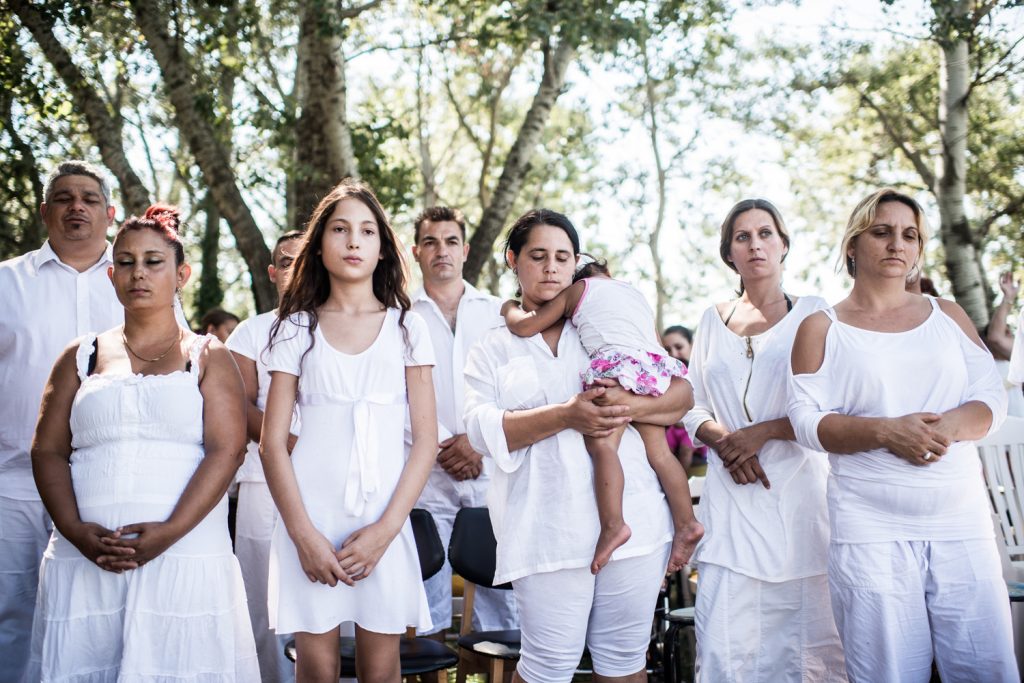
Converts waiting for immersion, near Horgos.
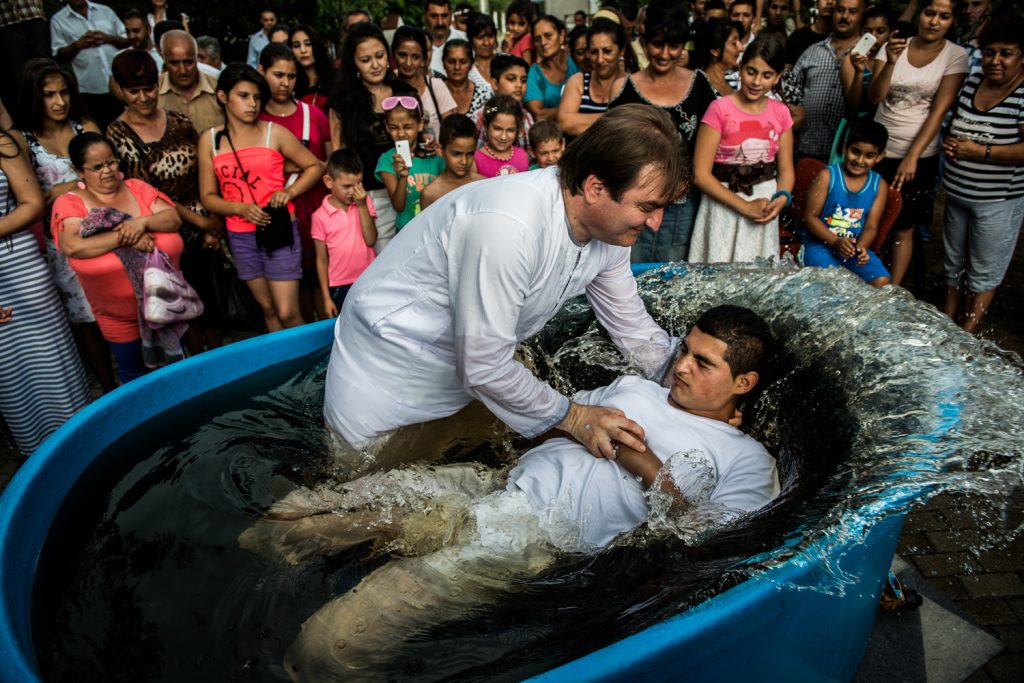
Albert Durkó, leader of the National Roma Mission of the Hungarian Pentecostal Church immersing a congregational member, Kótaj
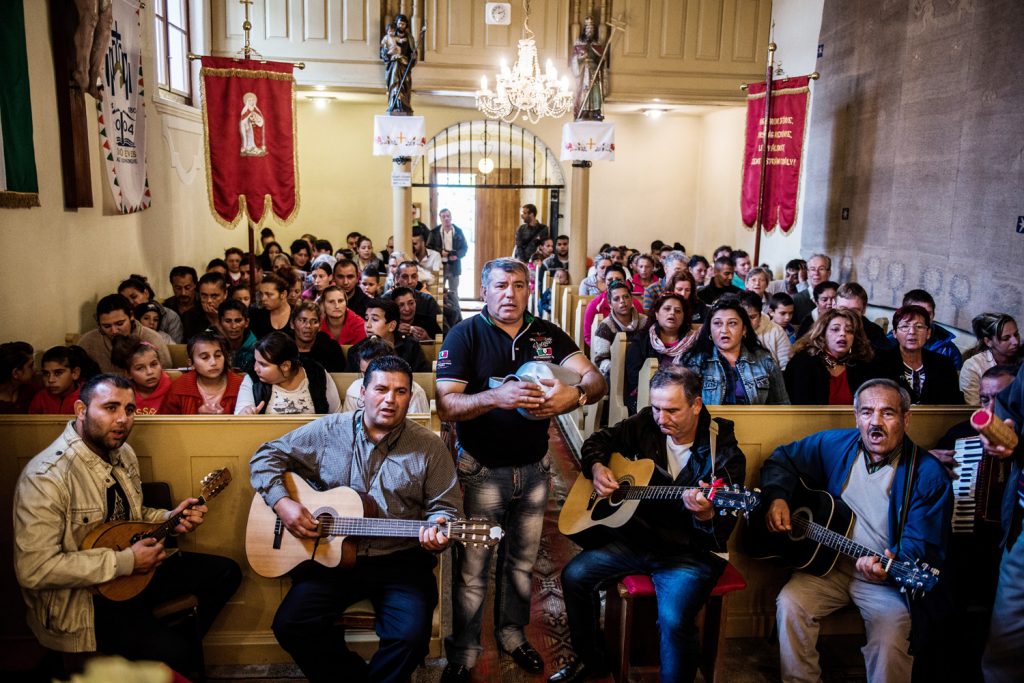
Mass of the Catholic Society of the Divine Word, Köröm. The goal of the gypsy mission is to make the Roma feel acceptance, love and forgiveness at the church, says Father Lourdu of India, leader of the congregation.
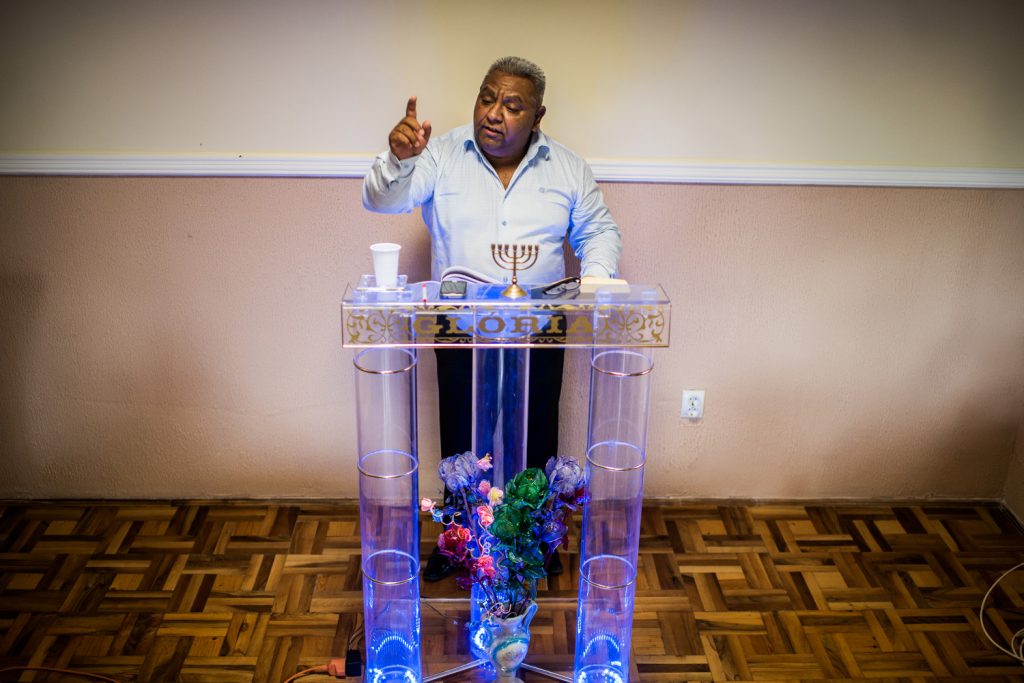
Pastor József Rézműves preaching, Kótaj
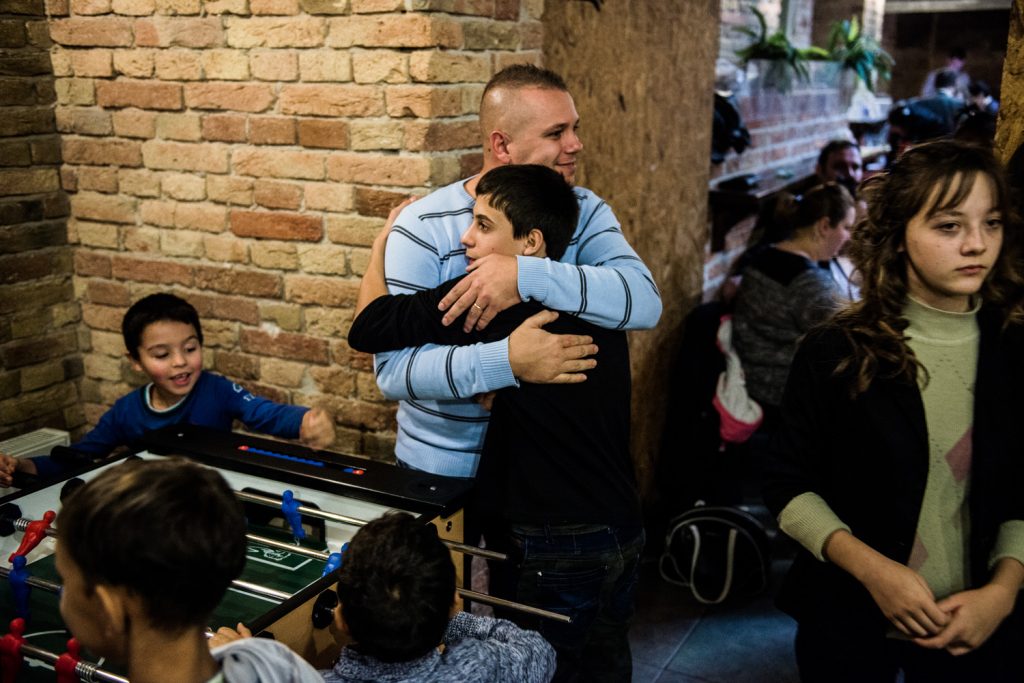
Kis Istvan is a former skinhead with a tattoo of the name of “Szálasi”, leader of the Hungarian post-war fascist party. He converts now Roma youth and preaches at the Congregation at the Pentecostal church in Békés.

Statue of the Virgin Mary on the side of a house, Kompolt

Woman in trance, Bread of Life Congregation, Tiszavasvári
Roman Bible
Dozens of small churches and even historical ones undertake pastorship for the Roma in Hungary, converting the poor, for whom often the only ray of hope is faith. More than eighty percent of the Roma who found faith mostly following the regime change attend charismatic congregations. The Pentecostal-Charismatic Movement is one of the most dynamically evolving Christian movements in developing countries. Typically popular in slums and poor neighbourhoods, the success of the movement lies, in the fact that they believe that the holy spirit can take effect through everybody.


